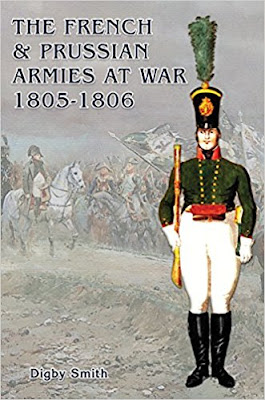The war of 1806 has long been accepted as just another example of the ruthless efficiency of Napoleon's Grande Armée, and while this is true, it is only half the story of that strange campaign. For, while Napoleon's formations whirred with matchless, lethal efficiency across northern Europe, outwitting and destroying the hapless Prussians, they were being assisted in their endeavors by their enemy themselves. Napoleon was emperor and commander-in-chief of his army, and was a genius in the military field as much as he was in many other spheres. In contrast, his opponents were commanded by a gaggle of geriatrics, jockeying for favor and influence about their well-intentioned, clueless King, Frederick William III. As General Blücher observed: The king is surrounded by a gang of malicious, inferior idlers. Although there was much that needed revision and improvement in the Prussian army of 1806, it would be false to think that all their generals and officers were blind to these multiple, extremely serious defects. Many reforms had been identified and it had been resolved to correct them, but events rolled over the army before they could be implemented. The twin defeats of Jena and Auerstedt on 14 October, 1806, triggered one of the most comprehensively catastrophic military defeats of an entire army in Western military history.
The results were that the performance of the Prussian army in this momentous campaign was often so abysmal that it was as if the entire high command was obsessed with a lemming-like death wish. Indecision, procrastination and subordination were rife throughout the command structure. While the French army outwitted and out-maneuvered the Prussians in every aspect of military operational skill, it was, as if the Prussians were so obsessed with shooting themselves in both left feet that they willfully ignored the presence of their deadly enemies.
This volume exposes the Prussian side of this tragi-comedy to English-speaking students for the first time; it will open many eyes.
The composition of the French army of 1806 is included, so that the reader may make a comparison between the two organizations.

No comments:
Post a Comment